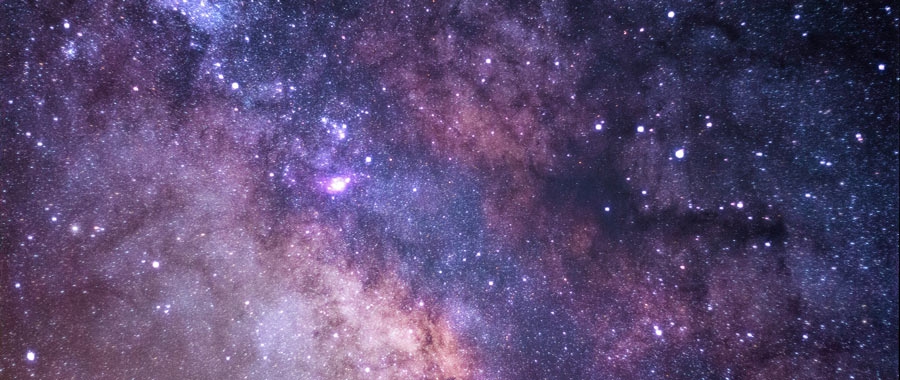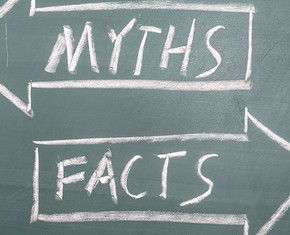The views expressed in our content reflect individual perspectives and do not represent the authoritative views of the Baha'i Faith.
Many scientists now agree that the universe began with a “Big Bang” – a massive expansion of matter and energy that occurred when a hyper-dense and superheated singularity became the known universe.
That cosmological model comes from tracing the universe’s ongoing expansion back through time, 13.8 billion years ago, to a period when all matter and energy may have emerged from an initial state of extreme density and temperature, where the laws of physics as we know them today did not apply.
How does science see so far into the past? Well, the Big Bang theory is still just a theory at this point, but it does offer scientists a comprehensive, well-suited explanation for a whole host of observations and measurements involving light, heat, cosmic background radiation and Hubble’s Law, the observation that the farthest galaxies are moving away from each other at the fastest speed.
The Big Bang theory does make sense when you consider one salient fact: we know that the distance between galaxies is increasing today, so that must mean galaxies were closer together in the past.
But not every scientist believes in the Big Bang theory. First, the Big Bang cosmological model doesn’t explain what caused energy, time, and space to actually come into existence – instead, it just describes the birth of our present universe from an ultra-dense and high-temperature initial state that scientists can’t “see” beyond. That state, the physicist Stephen Hawking believed, may have come from something he called the “no-boundary proposal,” in which time and space are finite, but do not have any boundaries or starting or ending points. (Want a hard puzzle to solve? Try to visualize that …)
Second, and perhaps more important, some renowned scientists who study the beginnings of the universe don’t much like the Big Bang theory, because we can only infer its existence rather than prove it. Dr. Jim Peebles, the Albert Einstein Professor Emeritus of Science at Princeton University, and the co-winner of the 2019 Nobel Prize in Physics, recently said that he does not necessarily believe the Big Bang theory, due to a lack of concrete supporting evidence: “It’s very unfortunate that one thinks of the beginning whereas in fact, we have no good theory of such a thing as the beginning.”
This suggests, as do the Baha’i teachings, that the universe may have no such thing as a beginning:
Know that it is one of the most abstruse questions of divinity that the world of existence – that is, this endless universe – has no beginning. …
… absolute non-existence lacks the capacity to attain existence. If the universe were pure nothingness, existence could not have been realized. Thus, as that Essence of Oneness, or divine Being, is eternal and everlasting – that is, as it has neither beginning nor end – it follows that the world of existence, this endless universe, likewise has no beginning. … – Abdu’l-Baha, Some Answered Questions, newly revised edition, pp. 207-208.
The world of creation has had no beginning and will have no end, because it is the arena upon which the attributes and qualities of the spirit are manifested. Can we limit God and his power? In the same manner we cannot limit his creations and attributes. Just as the reality of divinity is limitless, likewise his grace and bounties are limitless. – Abdu’l-Baha, Divine Philosophy, p. 169.
Some might be tempted to compare these statements in the Baha’i teachings to another scientific theory called “the steady state model,” which also presupposes the eternal existence of the universe. But a large body of evidence, including the existence of ubiquitous cosmic background radiation, has so far largely discredited that theory. The Baha’i teachings, instead of subscribing to either the Big Bang theory or the steady state model, simply say that the Creator has no beginning and no end, and therefore the creation has neither, as well:
Praise be to God, the All-Possessing, the King of incomparable glory, a praise which is immeasurably above the understanding of all created things, and is exalted beyond the grasp of the minds of men. … How indescribably lofty are the tokens of His consummate power, a single sign of which, however inconsiderable, must transcend the comprehension of whatsoever hath, from the beginning that hath no beginning, been brought into being, or will be created in the future till the end that hath no end. …
The wonders of His bounty can never cease, and the stream of His merciful grace can never be arrested. The process of His creation hath had no beginning, and can have no end. – Baha’u’llah, Gleanings from the Writings of Baha’u’llah, pp. 60-61.
So why should we care about all of this? What makes a remote scientific and theological question about the distant past and the origin or non-origin of the universe important? As the Baha’i teachings point out, these scientific questions illuminate a critically important concept: if the universe itself has no end, then neither do we:
The soul is not a combination of elements, it is not composed of many atoms, it is of one indivisible substance and therefore eternal. It is entirely out of the order of the physical creation; it is immortal!
Scientific philosophy has demonstrated that a simple element (“simple” meaning “not composed”) is indestructible, eternal. The soul, not being a composition of elements, is, in character, as a simple element, and therefore cannot cease to exist. – Abdu’l-Baha, Paris Talks, p. 90.
If you ponder this relationship between the boundless universe and your boundless human spirit, you may see and begin to understand what Baha’u’llah and all the prophets before him proclaimed:
As to thy question concerning the origin of creation. Know assuredly that God’s creation hath existed from eternity, and will continue to exist forever. Its beginning hath had no beginning, and its end knoweth no end. His name, the Creator, presupposeth a creation, even as His title, the Lord of Men, must involve the existence of a servant. – Baha’u’llah, Gleanings from the Writings of Baha’u’llah, p. 150.
Know thou of a truth that the soul, after its separation from the body, will continue to progress until it attaineth the presence of God, in a state and condition which neither the revolution of ages and centuries, nor the changes and chances of this world, can alter. It will endure as long as the Kingdom of God, His sovereignty, His dominion and power will endure. – Ibid., pp. 155-156.
Like creation, the individual human soul exists eternally. The recognition of that fact, by each person, creates the single most life-changing realization we can possibly undertake. The Baha’i Faith reminds us all that we each have an everlasting soul:
The conception of annihilation is a factor in human degradation, a cause of human debasement and lowliness, a source of human fear and abjection. It has been conducive to the dispersion and weakening of human thought whereas the realization of existence and continuity has upraised man to sublimity of ideals, established the foundations of human progress and stimulated the development of heavenly virtues; therefore it behoves man to abandon thoughts of non-existence and death which are absolutely imaginary and see himself ever living, everlasting in the divine purpose of his creation. He must turn away from ideas which degrade the human soul, so that day by day and hour by hour he may advance upward and higher to spiritual perception of the continuity of the human reality. – Abdu’l-Baha, The Promulgation of Universal Peace, p. 90.
















Comments
Sign in or create an account
Continue with Googleor